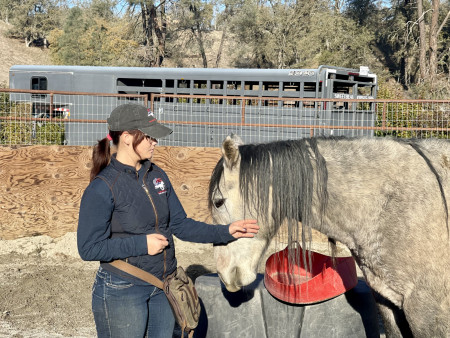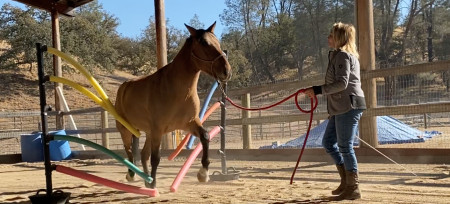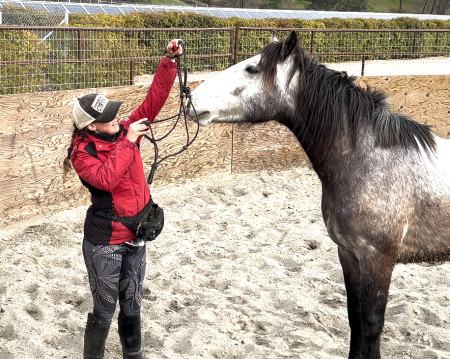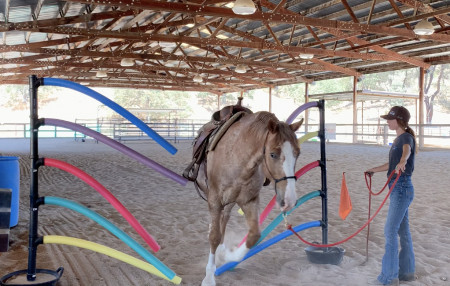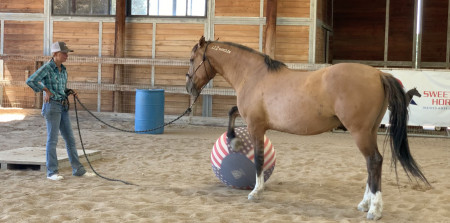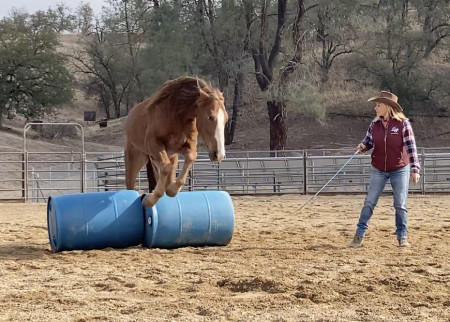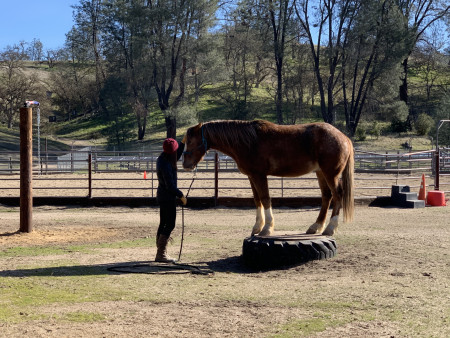Our Training Philosophy
We employ natural horsemanship methods that inspire acceptance vs. submission. Our strategy includes positive reinforcement that rewards curiosity, invites play and games, includes obstacle courses, desensitization. Riding time can be 12 to 24 months under saddle. We incorporate liberty training to establish a true partnership. The training the mustangs receive at Sweetbeau is thorough however, we require adopters to be a strong intermediate level rider. Our mustangs are trained to be solid trail horses, however their experience is broad, including liberty and obstacles, making them versatile enough to go in many directions.
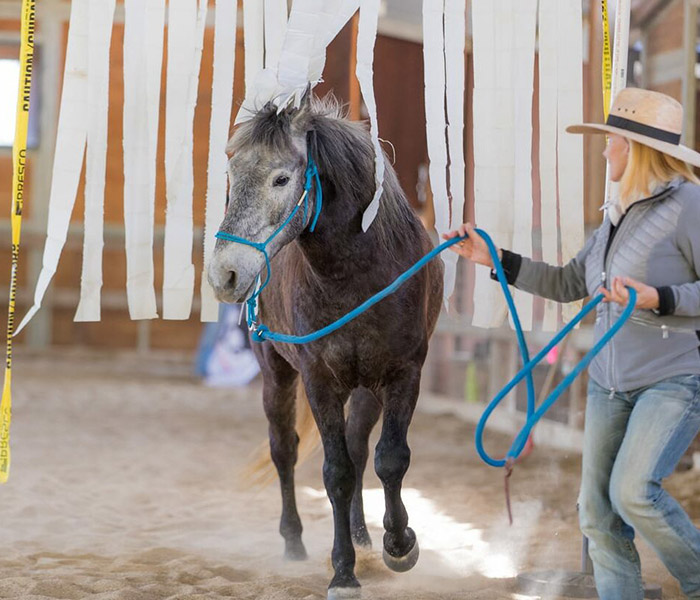
Too often, mustangs come with some level of a traumatic experience. Taken from their way of life, they have been separated from everything they have known, including family and freedom of choice. Often afraid, angry or just shut down from the outside world, these horses have a long journey ahead of them to recover. Our training methods are not only designed to turn out a well-trained performance horse, but as importantly, to change their fears to trust, their loss to hope and their sorrow to joy. Our ranch provides sanctuary upon arrival in spacious turnouts with 6ft. paneled fencing, where they begin their healing and gentling process. Our mustangs are generally 3 to 6 years old and gelded before we begin training. Our experienced trainers use soft and patient techniques to ensure that our mustangs experience with humans are positive and accepting. Our greatest reward is to see their spirits renewed and their personalities shine in their new world.
The ideal adopter for our horses is a strong intermediate, experienced horse person. Not because the horses are difficult, but because our training creates a light horse that is responsive to leg and seat with very light hands. This also makes them great potential horses for liberty work.
History of the Mustang
At one time it was believed that horses were introduced to our country by the Spanish, but modern fossils disprove that theory. Horses were actually endemic to North American and known to have migrated to Eurasia via the Bering Land Bridge during the geological epoch that lasted from about 2.5M to 11,700 years ago, spanning the earth's most recent period of repeated glaciations. Basically, they left North America to survive. The original ancient North American equine became extinct on the continent roughly ten thousand years ago along with the extinction that included mammoth, wooly rhinoceros, the sabretooth cat, camel, dire wolf, giant ground sloth, and the short-faced bear. The reappearance of the horse to North America happened through the Spanish, arriving in Mexico in 1519 AD. The domestic horses were often set free or escaped to reinhabit our country and became the first horses of the Native Americans. The name mustang comes from the Spanish word “mesteño,” which means “stray” or “wild.” The west was settled literally on the backs of these friends to man, until the industrial age rendered them without use other than recreational. As herds grew and roamed our nation, they were judged as competition to cattle by ranchers and were subjected to horrific acts of eradication by the ranchers.
Finally, in 1971, Congress passed the Wild Free-Roaming Horse and Burro Act, which was a result of one of the largest campaigns by the American public in history. More letters were sent to the white house to pass this law to protect wild horses and burros from being hunted or rounded up for slaughter than ever in history. And it was only surpassed by letters to stop the Vietnam war. The Department of the Interior, through the Bureau of Land Management and the Department of Agriculture, through the Forest Service, have the responsibility of administering this law. To this day, it is a deep point of contention and continual struggle between wild horse advocates and politically opposing organizations such as the Big Pharma, Oil Industry and National Cattlemen’s Association on how to manage the process fairly. If a vote by the citizens of our nation were taken tomorrow, polls show that over 85% would vote to protect our dwindling mustang populations and to keep them wild.
